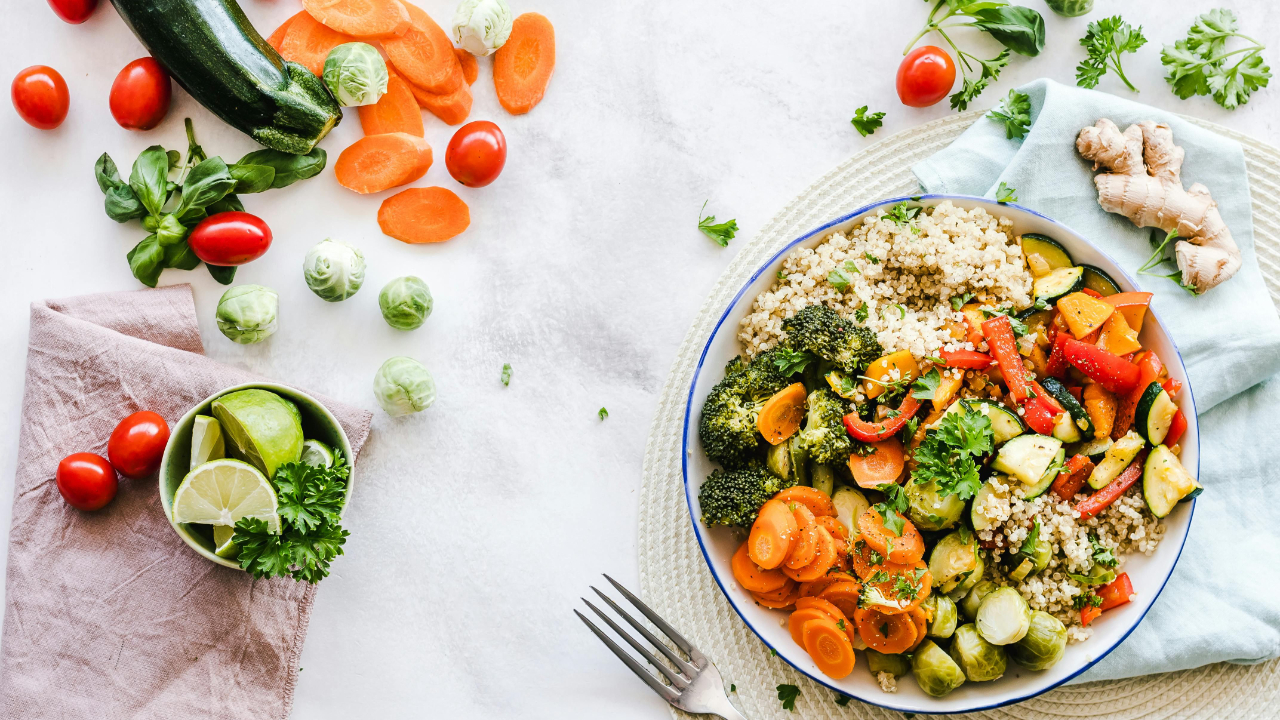How Seasonal Eating Supports Gut Health, Weight Management & Inflammation
Aug 28, 2025
Eating with the seasons is a simple, underrated way to support your digestion, weight, and overall health. From better flavor to improved nutrient density, seasonal produce offers unique benefits for your gut and body.
Let’s break down how seasonal eating makes a difference, plus examples of what to eat in each season.
3 Reasons Seasonal Eating Matters
-
Better Flavor & Nutrient Density
Produce harvested and consumed at its peak ripeness often tastes better and is more nutrient dense. It typically has higher levels of antioxidants, vitamins, and phytonutrients that support everything from your immune system to your gut microbiome.
-
A Natural Rhythm for Your Body
Eating seasonally connects us to the natural cycles of the year. Just as our routines shift with the seasons, our bodies benefit from different nutrients at different times. For example, hydrating melons in the summer and immune-boosting citrus in the winter.
-
Cost Savings
When fruits and vegetables are in season locally, they’re easier to grow, transport, and store, which often makes them more affordable than their out-of-season counterparts.
The Health Benefits of Seasonal Eating
Gut Health & Digestion
One of the most powerful benefits of seasonal eating is its impact on your gut microbiome. Different fruits and vegetables provide unique types of fiber that act as fuel for beneficial gut bacteria. Rotating your produce with the seasons naturally increases fiber variety, which is key for microbial diversity, better digestion, and reduced bloating.
Weight Management
Eating more whole foods and less processed foods is a great starting point for maintaining a healthy weight. Adding more fresh, seasonal produce to your diet is an easy way to start increasing whole foods in the diet, which will help you better manage hunger, feel more satisfied, and support weight management, without feeling restricted.
If you're looking to support weight management, blood sugar control is another important factor to consider. Check out this blog post: Top 5 On-the-Go Lunches for Blood Sugar Control & Sustainable Weight Loss
Inflammation Control
Produce harvested at peak ripeness contains powerful antioxidants and phytonutrients that can help calm inflammation. Eating a variety of colorful plants (“eating the rainbow”) ensures you’re getting a spectrum of anti-inflammatory compounds, from lycopene in tomatoes to anthocyanins in berries.
Seasonal Produce to Try
Here are some gut- and health-supporting highlights for each season:
Spring
- Leafy greens (spinach, arugula, kale, chard): Contain fiber + folate to reduce inflammation and support gut diversity.
- Asparagus: Rich in prebiotic fiber (inulin) to feed good bacteria.
- Radishes & spring onions: Contain sulfur compounds that aid detox and microbial balance.
- Strawberries: High in antioxidants + vitamin C for immune and skin health.
- Peas: Contain plant protein and fiber to keep you feel full and support weight management.
Summer
- Berries (blueberries, raspberries, blackberries): Contain polyphenols to strengthen the gut barrier and lower inflammation. They are also a great source of fiber.
- Tomatoes: A great source of lycopene, providing protection against oxidative stress.
- Zucchini & summer squash: Hydrating, low-calorie, and fiber-rich.
- Cucumbers & melons: Perfect for hydration + antioxidants.
- Stone fruits (peaches, plums, cherries): Contain soluble fiber for gut and blood sugar balance.
- Corn: A source of resistant starch + carotenoids to fuel gut bacteria.
Fall
- Apples & pears: Contain pectin (a prebiotic fiber) to feed gut microbes and improve satiety.
- Pumpkin & winter squash: High in beta-carotene for immune and gut health.
- Brussels sprouts & cruciferous veggies: A source of sulforaphane, which supports inflammation reduction.
- Beets: Full of antioxidants and contain nitrates, which are beneficial for circulation.
- Cranberries: Contain compounds that support gut and urinary health.
Winter
- Citrus (oranges, mandarins, grapefruits): High in vitamin C and flavonoids for immune support.
- Cabbage: Can be fermented into sauerkraut or kimchi for probiotic benefits.
- Sweet potatoes: Contain fiber and complex carbs for steady energy.
- Carrots & parsnips: Sources of antioxidants and prebiotic fiber.
- Leeks, onions, garlic: Contain inulin and allicin, which are compounds that fuel gut bacteria and reduce inflammation.
- Pomegranates: Contain polyphenols shown to boost microbial diversity in the gut.
How to Find What’s In Season Near You
Not sure what’s in season where you live? These resources can help:
And don’t forget: your local farmers market is one of the best ways to find fresh, affordable, seasonal foods. Are you a Wilmington, NC local? Check out out guide to the farmer's markets in the city.
The bottom line: Eating seasonally is one of the simplest ways to boost gut health, support a healthy weight, and reduce inflammation, while keeping your meals flavorful, affordable, and connected to nature.
